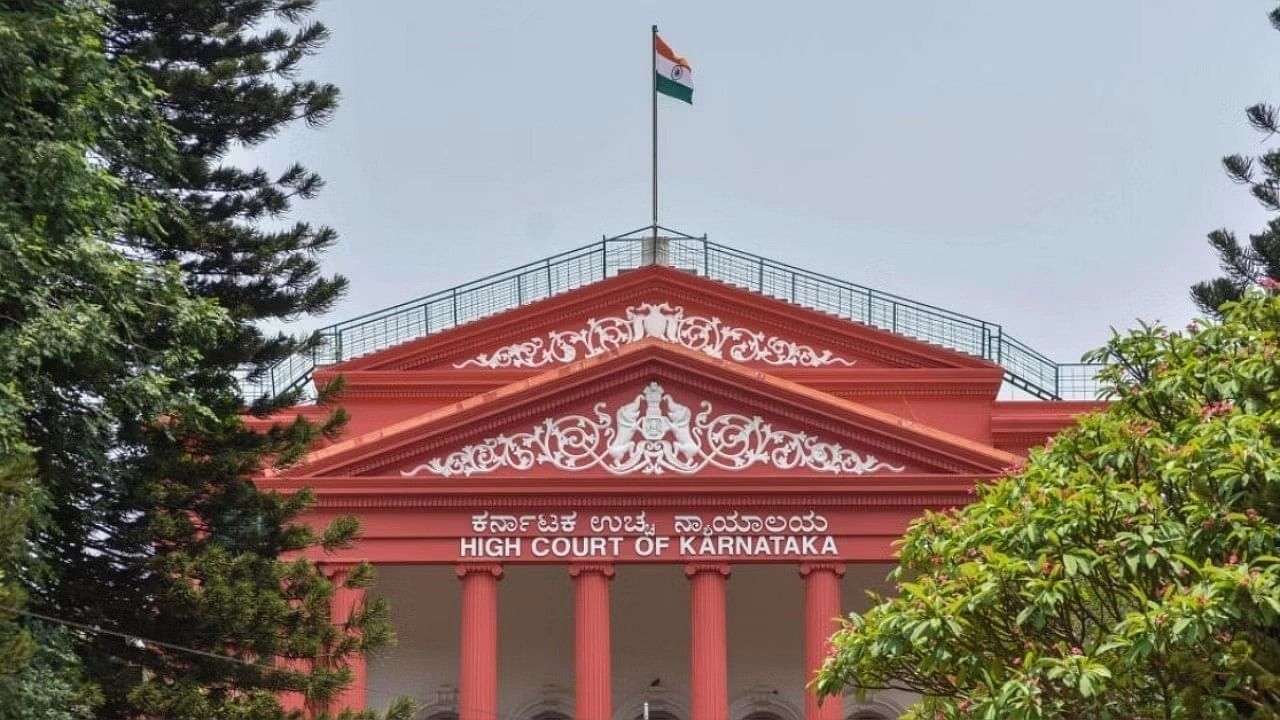
The Karnataka High Court.
Credit: DH File Photo
Bengaluru: In a first after the new criminal laws were introduced, the High Court has laid down procedure to be adopted by magistrates/courts concerned under section 223 (1) of Bharatiya Nyaya Suraksha Samhita (BNSS), pertaining to examination of the complainant in a private complaint.
Justice M Nagaprasanna issued the procedure while disposing of a plea by BJP MLA Basanagouda Patil Yatnal. A private complaint is presented before the magistrate under BNSS Sec 223, earlier CrPC Sec 200.
The court said on presentation of the private complaint, it would be the duty of the magistrate/court concerned to examine the complainant on oath, which would be his sworn statement, and examine witnesses present, if any, and substance of such examination should be reduced into writing.
It said the question of taking cognisance would not arise at this juncture. In terms of the proviso, the magistrate has to issue notice to accused, who is given an opportunity of being heard. Therefore, notice should be issued to accused at that stage and after hearing the accused, cognisance should be taken, its procedure should be regulated thereafter, he said.
Yatnal challenged the July 16, 2024, order by 42nd Additional Chief Judicial Magistrate, Bengaluru, the special court for elected representatives. The issue pertains to a complaint by MLA Shivananda S Patil, over an alleged defamatory speech by Yatnal at a poll rally.
Yatnal said there was procedural aberration by the magistrate and that the court concerned had issued the notice the moment a complaint was filed. He said the court had to issue a notice to the accused prior to taking cognisance.
It was argued on behalf of Patil that proviso mandates that the accused shall be heard prior to taking of cognisance and it is nowhere stated that the notice should be issued only at a particular time either immediately after filing complaint or recording of sworn statement, as the case would be. The judge said the language in the provision clears the obfuscation.
"Opportunity of being heard would not mean empty formality. Therefore, notice that is sent to the accused in terms of proviso to sub-section (1) of Sec 223 of BNSS shall append to it the complaint; the sworn statement; statement of witnesses if any, for accused to appear and submit his case before taking cognisance. In the considered view of this court, it is the clear purport of Sec 223 of BNSS 2023," the court said.
It said, "Matter is remitted back to magistrate to redo the exercise afresh, from the stage of entertainment of complaint, bearing in mind observations made in the course of the order. The said exercise shall be undertaken within 4 weeks from date of receipt of the copy of this order."